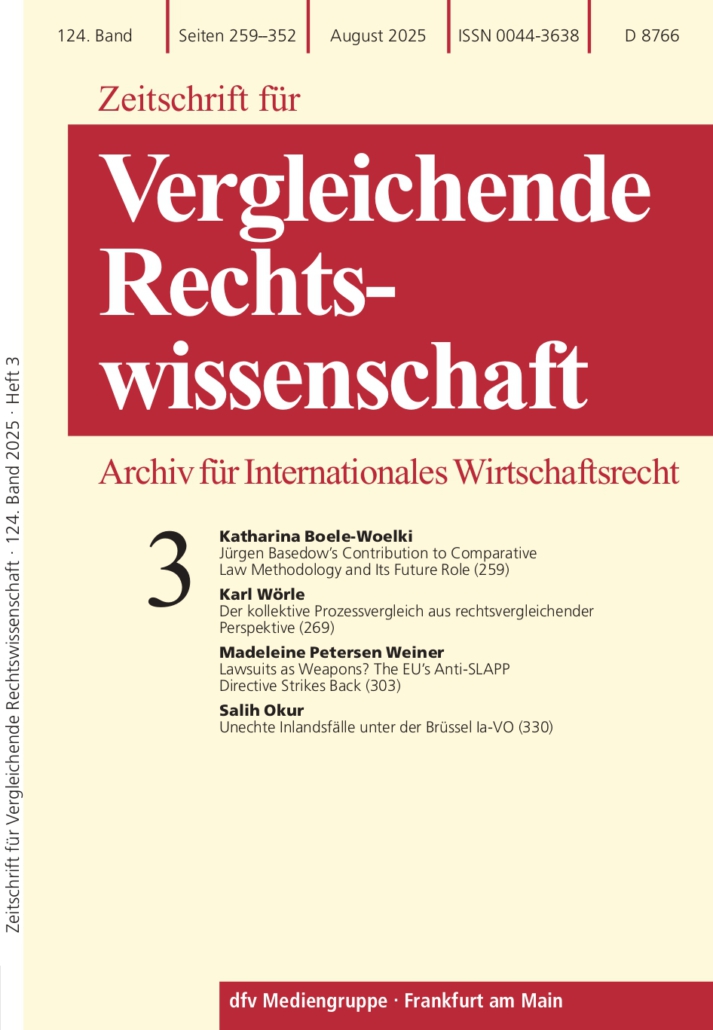ZVglRWiss – Zeitschrift für Vergleichende Rechtswissenschaft 3/2025
ZVglRWiss – Zeitschrift für Vergleichende Rechtswissenschaft 3/2025
A new issue of ZVglRWiss – Zeitschrift für Vergleichende Rechtswissenschaft is now available and includes contributions on EU private law, comparative law, private international law, and individual European private law regimes.
The full table of content can be accessed here.
The new issue 3/2025 includes:
Jürgen Basedow’s Contribution to Comparative Law Methodology and Its Future Role
Katharina Boele-Woelki reflects Basedow’s contributions to comparative law and its future role, with a focus on his views on the methodological principles of comparative legal research. In the wider ongoing debate on methodology in comparative law, Basedow provides practical, concrete arguments. Key discussions include functional versus cultural approaches, and micro- versus macro-comparative research.
Der kollektive Prozessvergleich aus rechtsvergleichender Perspektive
Karl Wörle discusses the relevance of elaborate procedural mechanisms to protect the interests of represented consumers. The US class action with its strong tradition of private dispute resolution would offer valuable impulses, which have been strongly adopted in the Netherlands. The prolific international experience should be capitalized on for Germany and Austria – considering the peculiarities of collective redress procedures and national legal cultures – to derive impulses for future legislative policy.
Lawsuits as Weapons? The EU’s Anti-Slapp Directive Strikes Back
Madeleine Petersen Weiner investigates and discusses the EU’s Anti-Slapp provisions and compares the European Directive with the U.S. Anti-Slapp Legislation. Having originated in the U.S., SLAPPs (Strategic Lawsuits Against Public Participation) now increasingly also occur in the EU. SLAPPs are considered abusive lawsuits as plaintiffs use the civil court system to silence opponents. Due to their threat to public participation – and ultimately to protect and foster democratic debate – the EU has enacted the so-called Anti-SLAPP Directive.
Unechte Inlandsfälle unter der Brüssel Ia-VO
Salih Okur investigates the CJEU’s decision in Inkreal and in FTI. In Inkreal, the CJEU recently held that an international element in the sense of the Brussels Ia Regulation can be established by a jurisdiction agreement between parties domiciled in the same Member State in favour of another Member State. Not a year later, in FTI, the CJEU held that the international element could also be established by the foreign destination of a package travel arrangement between parties domiciled in the same Member State. This paper proposes to understand the “international element” as an “international conflict of jurisdiction”. Against this standard, the CJEU’s decision in Inkreal is convincing while the opinion on FTI is not.


